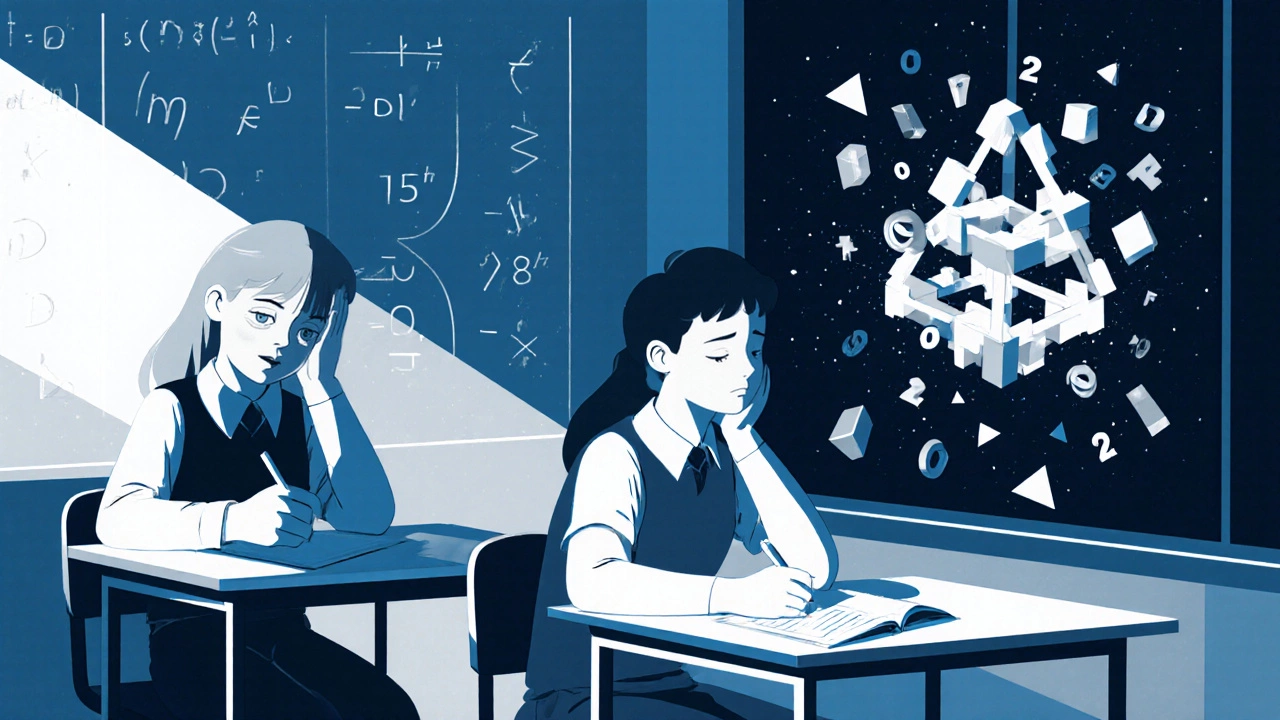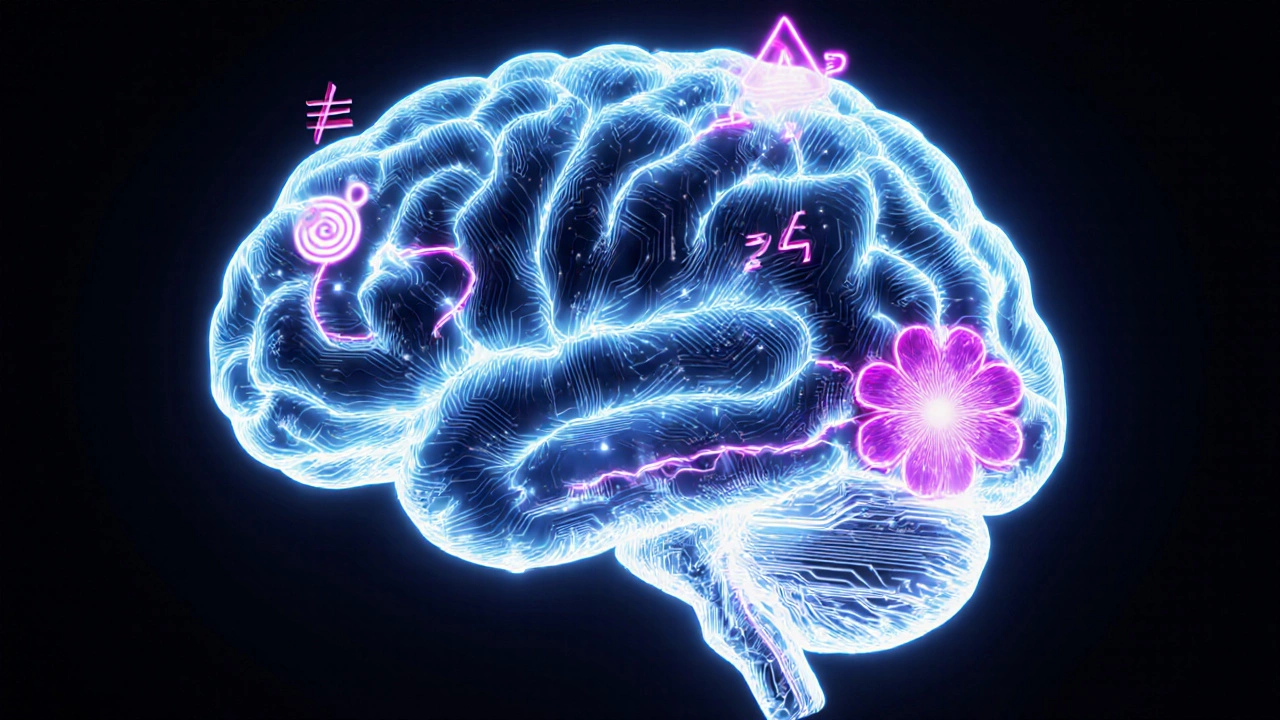Many students preparing for JEE Mains think the exam is all about memorizing formulas and grinding through thousands of practice questions. But if you’ve ever sat through a tough paper and watched someone solve a complex problem in seconds while you’re still reading the question, you’ve seen something deeper at work. That’s not just knowledge. That’s mental ability.
What Do They Mean by Mental Ability in JEE Mains?
Mental ability in JEE Mains isn’t a separate section. You won’t find a question that says, "Calculate your IQ." But it’s the invisible force behind every correct answer. It’s how quickly you recognize a pattern in a physics problem. It’s how you spot the trick in a math question that looks like a standard integration but hides a symmetry. It’s why two students with the same marks in mock tests end up with wildly different ranks on exam day.
The National Testing Agency (NTA) designs JEE Mains to test more than rote learning. A 2023 analysis of 12,000 JEE Mains papers showed that over 68% of the top 5% scorers solved problems using unconventional approaches-not because they knew a shortcut, but because they could reframe the problem mentally. They saw connections between topics others missed. A kinematics problem might be solved using energy conservation. A chemistry equilibrium question might be cracked by visualizing it as a balance scale.
How Mental Ability Shows Up in Each Subject
In Physics, mental ability means seeing beyond equations. Take this example: A block slides down an incline with friction. Most students plug numbers into F = ma and μN. But the top performers ask: "Does the motion change if I rotate the frame?" They mentally simulate the system before writing a single line. That’s mental modeling.
In Mathematics, it’s pattern recognition under pressure. A question gives you a series: 1, 4, 10, 20, 35… Most try to find the difference between terms. The mentally agile ones instantly recognize it as a sequence of tetrahedral numbers-because they’ve seen the structure before in combinatorics. They don’t calculate; they recall relationships.
In Chemistry, mental ability is about spatial reasoning and logic. Organic reaction mechanisms aren’t memorized-they’re reconstructed. If you’re given a product and asked to find the reactant, you don’t guess. You mentally reverse-engineer the steps: Which bond broke? Where did the electrons move? You visualize electron flow like water through pipes.
Why Memorization Alone Fails in JEE Mains
You can know every formula in HC Verma and still get stuck on a question. Why? Because JEE Mains doesn’t ask you to apply formulas. It asks you to choose the right one-fast.
A 2024 survey of 2,100 JEE Mains aspirants found that 73% who scored below the 90th percentile spent over 70% of their study time on rote revision. The top 10% spent 40% on practice, 30% on analyzing mistakes, and 30% on solving unfamiliar problems. The difference? The top group trained their brains to think, not just recall.
Here’s the hard truth: If you can’t solve a problem you’ve never seen before, you’re not ready. JEE Mains has a 40%+ novelty rate every year. That means nearly half the paper contains questions that don’t appear in any previous paper or sample set. Your brain must adapt on the spot.

How to Train Your Mental Ability
You can’t just "be smart." You have to build mental flexibility like a muscle. Here’s how:
- Solve one new problem daily-not from your coaching material, but from international Olympiads, past IPhO or IMO questions, or even puzzle books. These force you to think differently.
- Time yourself on hard problems. Give yourself 5 minutes. If you don’t solve it, walk away. Come back the next day. The gap helps your subconscious make connections.
- Explain solutions out loud. Even if you’re alone. Saying "I used conservation of momentum here because the system had no external force" forces you to articulate logic, not just follow steps.
- Interleave topics. Don’t study physics for a week straight. Mix it with math and chemistry. Your brain learns to switch contexts-exactly what the exam demands.
- Review your wrong answers like a detective. Don’t just note the correct answer. Ask: "What assumption did I make? What did I ignore? What pattern did I miss?" Write it down.
Real Examples: What Mental Ability Looks Like on Exam Day
Take this 2024 JEE Mains question: "A charged particle enters a magnetic field perpendicular to its velocity. If the field strength increases linearly with time, what happens to the radius of its path?"
Most students panic. They remember r = mv/qB, but B is changing. They freeze.
The mentally agile student thinks: "If B increases, r should decrease. But if B changes over time, the force changes too. Is the motion still circular?" They realize the path becomes a spiral. Then they recall Faraday’s law-changing B induces an electric field. That field accelerates the particle. So speed increases. Radius might not shrink as expected. They don’t plug numbers. They reason through physics.
Another example: A math question gives you a function f(x) = x² + 2x + 1 and asks for the minimum of √f(x). Most differentiate. The sharp one sees f(x) = (x+1)², so √f(x) = |x+1|. Minimum is 0. Done in 10 seconds.

What Doesn’t Help: Myths About Mental Ability
Let’s clear up some myths:
- Myth: Only geniuses have mental ability. Truth: It’s trained. I’ve seen students go from average to top 1% in 6 months by changing how they practice.
- Myth: Speed comes from practice alone. Truth: Speed comes from recognition. You don’t get faster by doing 1000 problems the same way. You get faster by doing 100 problems in 10 different ways.
- Myth: Mental ability means solving everything. Truth: It means knowing when to skip. The top scorers leave 2-3 hard questions blank and nail the rest. Strategy is mental too.
Final Thought: It’s Not About How Much You Know
JEE Mains isn’t a test of memory. It’s a test of how your brain handles uncertainty. The syllabus is fixed. The questions aren’t. The difference between a 95 percentile and a 99.9 percentile isn’t how many formulas you know. It’s how clearly you think under pressure.
Build your mental muscle. Solve strange problems. Question your assumptions. Walk away when stuck. Explain your thinking. That’s how you don’t just pass JEE Mains-you dominate it.
Is mental ability tested directly in JEE Mains?
No, there’s no separate section for mental ability. But it’s the hidden skill behind every correct answer. JEE Mains questions are designed to separate those who can apply concepts flexibly from those who only memorize them. Your ability to recognize patterns, switch between topics, and solve unseen problems is what the exam measures indirectly.
Can I improve my mental ability for JEE Mains?
Yes, absolutely. Mental ability isn’t fixed. You train it by solving unfamiliar problems, interleaving subjects, explaining solutions aloud, and reviewing mistakes deeply. Doing the same problems over and over won’t help. You need variety, challenge, and reflection.
Why do some students solve problems faster even if they study less?
They’re not studying less-they’re studying smarter. They focus on understanding relationships between concepts, not just memorizing steps. They’ve trained their brains to recognize structures quickly. One student who solved 50 different types of integration problems in varied contexts will outperform someone who solved 500 identical ones.
Does coaching help build mental ability?
Coaching gives structure and practice material, but it doesn’t automatically build mental ability. Many coaching materials repeat patterns. True mental agility comes from going beyond coaching material-solving Olympiad-level problems, analyzing real exam papers from other countries, and thinking through why a solution works, not just how.
Should I focus more on mental ability or syllabus coverage?
Cover the syllabus first-there’s no shortcut around knowing the content. But once you’ve covered 80% of the syllabus, shift focus. Spend 60% of your time on problem-solving that challenges your thinking, not just repetition. The top scorers don’t know more-they think better.












